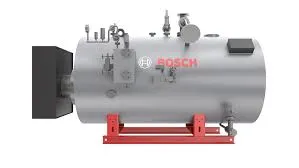
Dec . 06, 2024 22:27 Back to list
hot water boiler psi
Understanding Hot Water Boiler PSI A Key to Efficient Heating
Hot water boilers are essential components in many heating systems, providing warmth and comfort in residential and commercial environments. One critical aspect of a hot water boiler's performance is its pressure, often measured in pounds per square inch (PSI). Understanding boiler PSI is crucial for ensuring efficient operation, safety, and longevity of the system.
What is PSI in Hot Water Boilers?
PSI, or pounds per square inch, is a unit of pressure that measures the force exerted by the water or steam inside the boiler. In hot water boilers, the PSI reading indicates the pressure at which the water is heated and circulated throughout the heating system. Maintaining the correct PSI is vital for efficient heating and preventing issues that could lead to system failure or hazards.
Optimal Boiler Pressure Levels
Typically, hot water boilers operate at a pressure range of 12 to 30 PSI. For residential systems, the ideal pressure is often around 12 to 15 PSI when the system is cool. As the system heats up, the pressure can rise to about 20 to 25 PSI during operation. It's crucial to monitor this pressure to ensure it remains within the recommended range. If the pressure consistently exceeds 30 PSI, it could indicate a serious issue, such as overfilling or malfunctioning components, which may pose safety risks.
The Importance of Maintaining Proper PSI
1. Efficiency Operating within the correct PSI range ensures that the boiler heats water effectively. If the pressure is too low, the boiler may not reach the desired temperature, resulting in insufficient heating. Conversely, excessive pressure can lead to energy inefficiency and increased fuel consumption.
hot water boiler psi

2. Safety High pressure in a boiler can lead to dangerous situations. Most modern boilers are equipped with safety features like pressure relief valves, which are designed to release excess pressure. However, relying on these safety mechanisms is not ideal; instead, regular monitoring and maintenance can prevent dangerous conditions from developing.
3. Longevity Consistently maintaining the correct pressure helps extend the life of the boiler. High-pressure levels can cause additional stress on the boiler components, leading to faster wear and potential breakdowns. Regular checks can identify problems early, allowing for timely repairs and preventing costly replacements.
How to Monitor and Adjust PSI
Monitoring your boiler's PSI is relatively straightforward. Most boilers have a built-in pressure gauge that displays the current pressure level. Homeowners should regularly check this gauge, especially during the initial heating season after a summer hiatus.
If you find that the pressure is too low, you can add water to the system through the filling loop, but take care to do so gradually. On the other hand, if the pressure is too high, you may need to bleed the radiators to release some pressure or check the pressure relief valve for proper function.
Conclusion
Understanding and maintaining the correct PSI in a hot water boiler is crucial for achieving efficient heating, ensuring safety, and prolonging the life of the system. Homeowners should regularly monitor their boiler’s pressure and conduct maintenance as necessary. By being proactive about boiler care, you can enjoy a warm, comfortable home all winter long, along with peace of mind knowing that your heating system is operating safely and effectively.
-
Oil Fired Hot Water Boilers Sale - High Efficiency & Affordable
NewsJul.31,2025
-
High-Efficiency Commercial Oil Fired Steam Boiler for Industry
NewsJul.30,2025
-
High-Efficiency Biomass Fired Thermal Oil Boiler Solutions
NewsJul.30,2025
-
High Efficiency Gas Fired Thermal Oil Boiler for Industrial Heating
NewsJul.29,2025
-
High-Efficiency Gas Fired Hot Water Boiler for Sale – Reliable & Affordable
NewsJul.29,2025
-
High Efficiency Biomass Fired Hot Water Boiler for Industrial and Commercial Use
NewsJul.29,2025
Related PRODUCTS






















